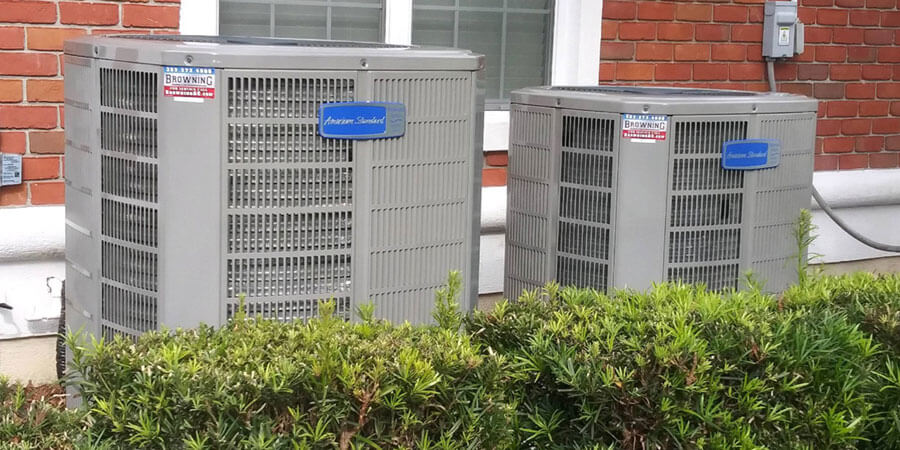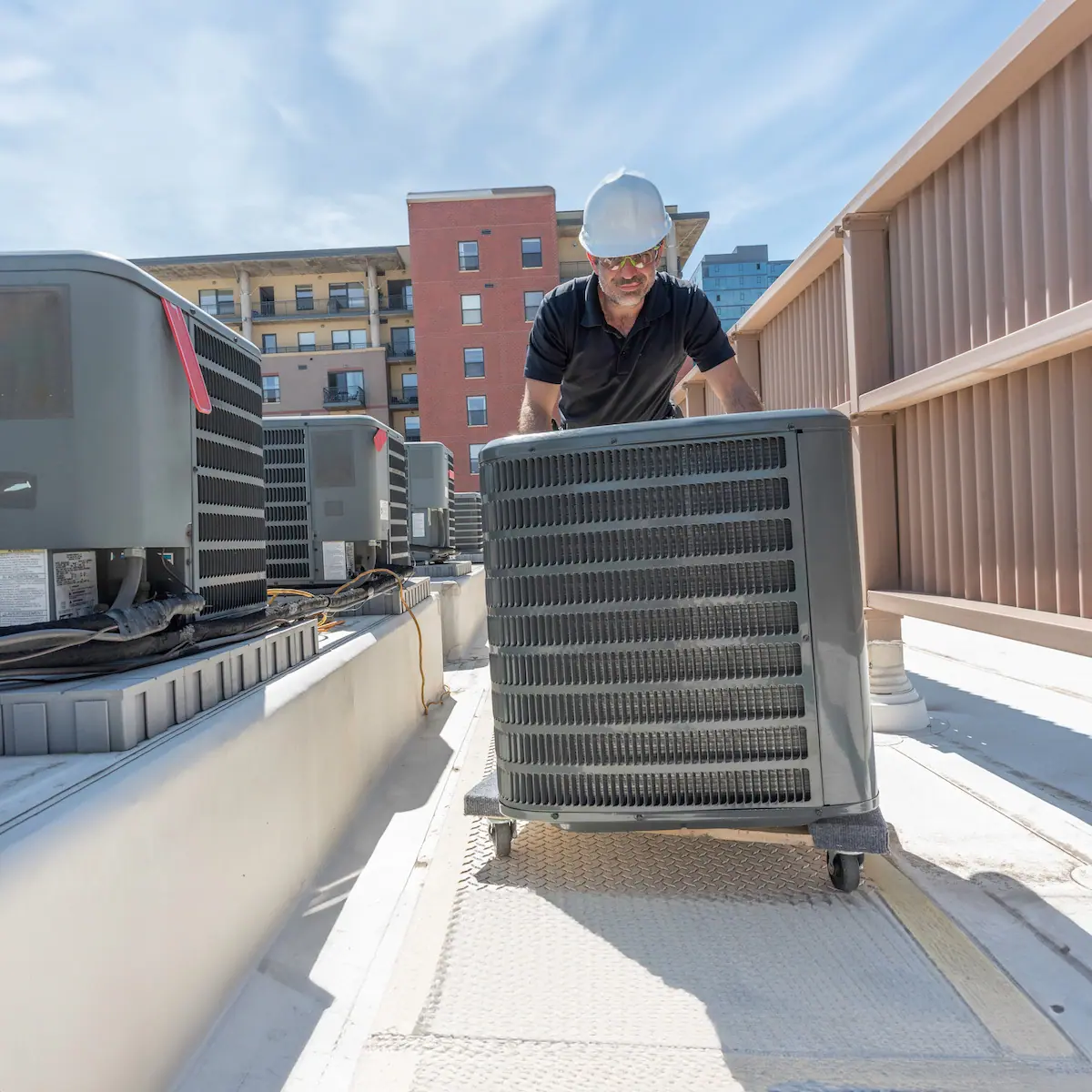The Significance of Heating And Cooling Installment: Key Considerations for a Comfy Indoor Setting
The installment of a HVAC system is an important component in attaining an energy-efficient and comfy interior atmosphere. The process entails several nuanced factors to consider that go beyond just choosing a device off the shelf. Factors such as the suitability of the system for details building needs, appropriate sizing to prevent inefficiencies, and the knowledge of service providers for a quality installation play critical roles. Furthermore, the adoption of sophisticated innovations can dramatically enhance system performance. Understanding these intricacies is just the start of guaranteeing ideal interior comfort. What are the vital elements that dictate successful a/c application?
Selecting the Right System

When choosing an a/c system, it is crucial to evaluate the capability required to efficiently warmth or cool the space without straining the system, which can lead to boosted wear and operational expenses. Consulting with an expert cooling and heating contractor can provide important understandings right into picking a system that lines up with both the expected use and the architectural style patterns of the building.
In addition, thinking about the combination of smart innovation can boost system management and monitoring, providing higher control and potential price savings. By carefully evaluating these variables, one can make certain the selection of an a/c system that not only meets instant demands however additionally adds to long-lasting operational sustainability and passenger convenience.
Comprehending Power Efficiency
Comprehending power effectiveness is necessary when taking into consideration a Heating and cooling installment, as it directly affects both the environmental footprint and the operational expenses of the system. The efficiency of an A/c system is generally shown by ratings such as SEER (Seasonal Power Performance Proportion) for air conditioners or AFUE (Yearly Fuel Usage Effectiveness) for heaters.

Investing in an energy-efficient heating and cooling system not just translates to cost financial savings but also contributes favorably to ecological preservation by decreasing greenhouse gas emissions. Additionally, lots of jurisdictions provide incentives or refunds for the setup of high-efficiency systems, better enhancing their financial allure.
When reviewing energy efficiency, take into consideration advanced attributes such as variable rate electric motors, clever thermostats, and zoning capabilities. These innovations improve the system's capability to get used to varying demand, consequently enhancing power usage. It is critical to consult with HVAC specialists who can give insights right into the very best choices customized to specific climate problems and usage patterns, ensuring maximum performance and convenience.
Significance of Appropriate Sizing

On the other hand, an undersized heating and cooling system will certainly struggle to get to the preferred temperature, especially throughout extreme climate problems. This can result in continual operation, bring about visite site higher power expenses and potential getting too hot of system elements. Furthermore, poor sizing can cause inconsistent temperature level distribution, triggering particular areas of a structure to be as well cozy or too awesome.
To accomplish the correct sizing, a detailed tons estimation is vital. This involves examining various aspects such as the building's square video footage, insulation degrees, home window kinds, and regional climate problems. By precisely establishing the home heating and cooling down demands of a space, a/c experts can recommend systems that make sure reliable operation, decreased power intake, and enhanced interior convenience.

Guaranteeing High Quality Setup
A smooth Heating and cooling installation is the cornerstone of a system's long life and performance. This specialist must possess comprehensive understanding of diverse systems and be skilled at assessing the details requirements of the building.
Correct installation goes past simple placement of equipment. It entails exact calibration to ensure optimum air movement, effective energy intake, and uniform temperature level distribution. This consists of accurate ductwork installment, guaranteeing links are leak-free and safe, which is crucial for maintaining system performance and indoor air high quality.
Furthermore, the execution of innovative analysis devices during setup can find potential issues early, preventing costly repairs and extending the life expectancy of the system. The contractor must likewise make certain that all components work which the system abides with neighborhood building codes and policies.
Routine Upkeep Practices
As soon as the structure for a high-performing heating and cooling system is developed with top quality setup, the focus should move to routine upkeep practices to guarantee continued efficiency and reliability. Regular upkeep not only expands the life expectancy of the system but likewise enhances interior air quality, reduces energy usage, and stops costly repair work. Necessary maintenance tasks include frequently changing air filters, cleansing evaporator and condenser coils, and evaluating the system for clogs or leakages.
Air filters must be replaced or cleansed every one to three months, relying on usage and ecological elements. This simple job can dramatically enhance air flow and system performance (Electrician in Brownwood TX). Cleaning up the evaporator and condenser coils avoids dust build-up, which can prevent heat absorption and air conditioning capacity. In addition, specialist technicians need to examine the system each year, inspecting for cooling agent levels, electrical discover this connections, and total system performance.
Focus to ductwork is also important; securing and cleaning ducts consistently avoids air loss and contamination. Carrying out an upkeep timetable ensures that minor problems are resolved prior to they escalate, safeguarding the system's operational stability. By sticking to these maintenance methods, house owners can maximize their heating and cooling system's performance and keep a comfy interior environment year-round.
Final Thought
By picking a proper system tailored to certain building needs, understanding power performance, and making sure appropriate sizing, inadequacies page can be lessened. The participation of proficient professionals warranties top quality setup, while the assimilation of sophisticated modern technologies boosts system performance and surveillance.
Several kinds of Heating and cooling systems are readily available, including split systems, hybrid systems, duct-free systems, and packaged home heating and air systems, each with distinct benefits and limitations.
Recognizing energy efficiency is necessary when considering an A/c installment, as it directly influences both the environmental impact and the functional prices of the system. The efficiency of an A/c system is typically indicated by ratings such as SEER (Seasonal Energy Performance Proportion) for air conditioners or AFUE (Annual Fuel Use Performance) for furnaces (air conditioning installation Brownwood TX).Once the foundation for a high-performing Heating and cooling system is developed with high quality installment, the emphasis must move to routine maintenance methods to make sure ongoing effectiveness and dependability. Furthermore, specialist technicians should inspect the system annually, examining for cooling agent degrees, electric links, and total system efficiency